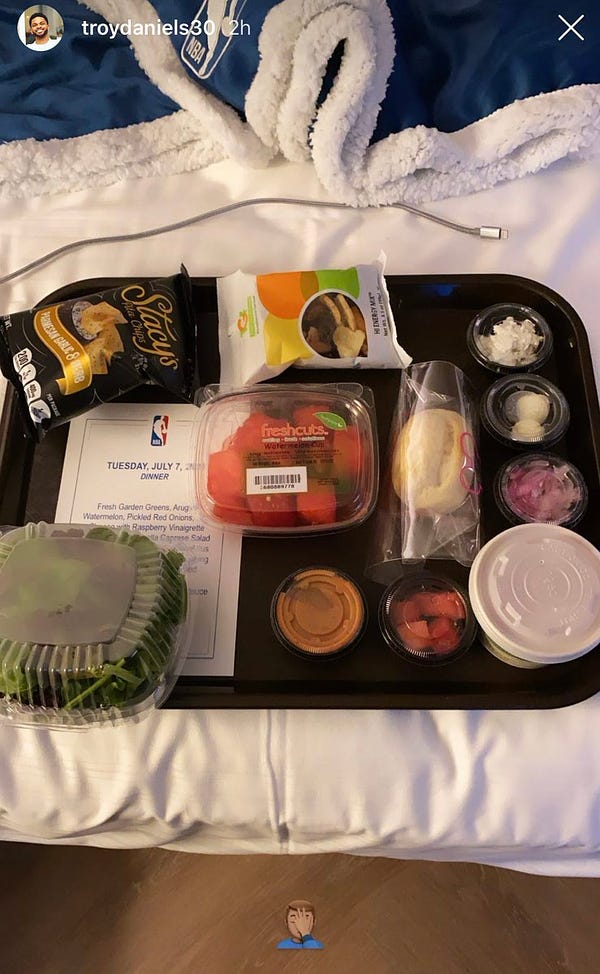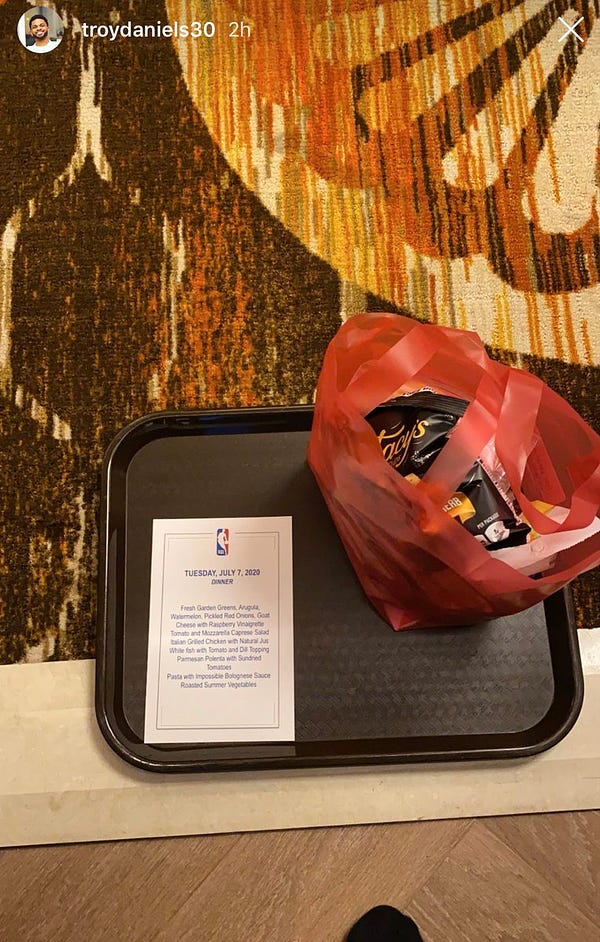empowering you with insights and information from the edge of today’s headlines
International
The new Hong Kong security law has forced many technology companies to reconsider their practices in Hong Kong. Google, Twitter, Zoom, Microsoft and WhatsApp (among others) announced that they would cease reviewing requests by the authorities for customer data while they undertake a review of the law itself.
TikTok pulled out of the Apple and Google app stores within Hong Kong, and although TikTok itself doesn’t operate in China, it is owned by a Chinese company. TikTok has attempted to distance itself from its Chinese “heritage” by hiring an American CEO (Kevin Mayer, formerly of Disney). Due to its global popularity and reach, TikTok has come under fire as a proxy for punishing the Chinese government.
India banned the app last week, and both Pompeo and Trump said a ban was under consideration in the US. TikTok has also been accused of violating data privacy and collection policies especially for children. Even the US Army has banned TikTok from employees’ devices.
Christopher Wray, the FBI director, claimed China was the greatest threat to the US in terms of economics and technology. He stated that
The Chinese government is engaged in a broad, diverse campaign of theft and malign influence and it can execute that campaign with authoritarian efficiency.
Hong Kong’s new security law is difficult to navigate: essentially anything that is not explicitly permitted can be deemed illegal and can have far reaching consequences. If you happen to be a non-Chinese citizen and speak out against the government, and you travel to Hong Kong for business, you may be arrested, for instance.
As a first step, the Chinese government set up a national security office in Hong Kong at a former hotel which was located close to the center of commerce and the protests, putting security agents from the mainland in Hong Kong for the first time.
While the concerns in Hong Kong are severe, the worries over Chinese surveillance and security through TikTok’s data seem to be blown out of proportion (at least when compared to US tech companies). Google, Facebook and pretty much every app we have on our phones know more about us than we often do ourselves. We have already given up privacy for convenience, and while we are not sure we want Interpol or Xi to know our personal habits, that train has left the station long ago.
Signal, the encrypted messaging app, used the opportunity to remind the Twitterverse that they wouldn’t turn over any data, because they don’t collect any. Maybe its time to reconsider encryption?
We are not sure that attacking China for the virus or TikTok are the most effective or efficient means of showing our own superpowers. We’d rather the US government support innovation and regulate our own technology companies in order to assert control and dominance. Bringing back the Chief Technology Officer of the United States would be a nice start.
What we are watching: The UK announced its own, post-Brexit version of the Magnitsky Act this week. The law (named after a Russian lawyer who died in a Moscow prison after investigating officials for accounting fraud) places visa bans and asset freezes on international officials who are linked to human rights abuses. The list of officials also includes Saudi Arabian officials linked to the killing of journalist Jamal Khashoggi.
For more background and the history of Magnitsky have a listen to Preet Bharara’s interview with Bill Browder, the author of Red Notice and a frequent target of Putin.
Go Deeper:
Vox on Tech Companies in Hong Kong
BBC on Magnitsky Act
Technology
Yesterday, Facebook met with several representatives from the #StopProfitForHate movement — over 500 advertisers have joined the boycott. As expected, the organizers left the meeting “disappointed” as Facebook seemed to want a participation award rather than put concrete plans into production.
Facebook also released its own audit on hate speech this morning, which it effectively failed. The auditors found that
Facebook’s approach to civil rights remains too reactive and piecemeal.
And last night, Facebook’s oversight board (which was meant to be an external judge of controversial content), announced that it actually won’t get started until late Fall. Members of the board were announced in May, but its oversight will be MIA during the most controversial period for content: the US Presidential election.
Although the advertiser boycott is not expected to put a large dent in Facebook’s bottom line, it has continued to taint its reputation. Facebook continues to make promises of change, but has yet to put any real policies into action to stop hate speech and misinformation. We’ll see if Zuckerberg can defend himself in the House on July 27, or if he continues to opt for profits over peace.
Go Deeper:
Guardian on Facebook
NY Times on Facebook Audit
Business
Raising our eyebrows 👀: The financial markets have always been innovative, as market makers attempt to reduce their own risk and create products that are attractive for others to purchase. One of the innovations was the asset backed security: an asset with an expected future cashflow (like an auto loan or mortgage) can be repackaged and sold to a wide group of investors. Banks gets the creditors’ risk of their balance sheets and investors get a high expected return.
Many esoteric assets have been securitized: David Bowie sold the fees to his future music royalties in 1997 and received $55M upfront which allowed Bowie to buy out his former partner and investors to own a piece of their favorite artist.
By a loophole in EU securitization laws (or a lack of Know Your Customer regulations), the Italian Mafia sold securitized bonds worth €1B from 2015-2019. The bonds were securitized by receivables (unpaid invoices) linked to properties controlled by a prominent Italian Mafia cartel.
We’ve heard of creative structured products, but this one certainly takes the cake (or the cannoli).
Go Deeper:
FT Investigation
Culture
We seem to have reached the stage of the performative Karen.
The Karen meme started as a negative term for a middle-aged, white woman who would be likely to ask to speak to the manager when she perceived a personal slight. The meme, however, has grown to encompass women demonstrating their overt racist tendencies.
Videos of Karens, such as Amy Cooper in Central Park, have been used to demonstrate widespread racism and also out the offender. Many have been doxxed, lost their jobs and publicly shamed.
However, this week we saw one such Karen film her own adventure in an Arizona Target destroying a retail display for masks and the confrontation with police (and her husband) in her own garage.
We are also witnessing a “trend” of vehicles running over protesters who are then filmed and broadcast on social media. Protesters have been killed in Seattle and Bloomington, and others have been plowed down by vehicles in New York and several other cities.
Following the massacre in New Zealand and many school shootings, names of the perpetrators were withheld, so as to withhold their “viral” moment. Seems like we are now in a similarly, violent meme culture. Do we dox and shame the Karens, expose the racial injustice, give everyone a bodycam? Or do we keep them from the highly coveted 15 minutes of fame?
Some levity from the NBA: Do you remember the Fyre Festival, and the pictures of the sloppy sandwiches that were supposed to be high end cuisine? NBA players have been posting pictures of their meals inside the bubble at Disney World, and the similarity is slightly upsetting. With an average NBA salary of $7.7M, we’d think the room service would be more Ritz Carlton than a coach airline meal.
Design
The coronavirus has changed many things about our day to day life. Now it is even impacting architecture. Corona has forced restaurants and gyms to get creative, building protective bubbles for customers.
In Amsterdam, we saw mini greenhouses set up across the river for diners. In Toronto, a yoga studio set up geodesic domes for practitioners. In Oakland, New York and other US cities, restaurants are taking over parking spaces and creating mini-parklets to provide outdoor seating. The branding and use of materials ranges from saw horses to fences to colorful gates.
While this may work in the warm weather, we are not sure how architecture will adapt as it gets too cold to eat outdoors. Maybe we’ll each get our own space suit with a private HVAC or giant plastic cones of “shame”??
We feel like this may be the opposite of hostile urban architecture: the strategy of purposefully building uncomfortable or restrictive elements into spaces to keep people out (like extra hand rests on benches to keep people from sleeping). How will public space become private yet foster community?
— Lauren Eve Cantor
thanks for reading!
if someone sent this to you or you haven’t done so yet, please sign up below so you never miss an issue.
if you have any feedback or want to engage on any of the topics discussed in On the Edge, please feel free to reply to this email.
we hope to be flowing into your inbox a few times a week. stay tuned for more!
visit our past editions in the archives.






